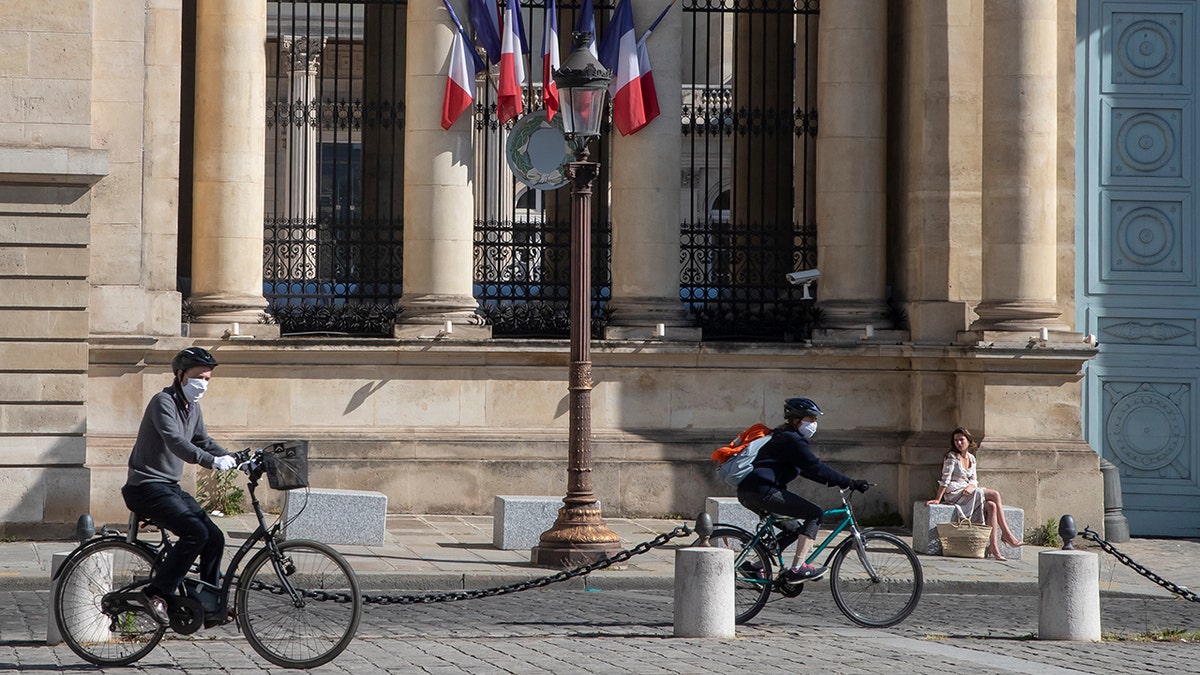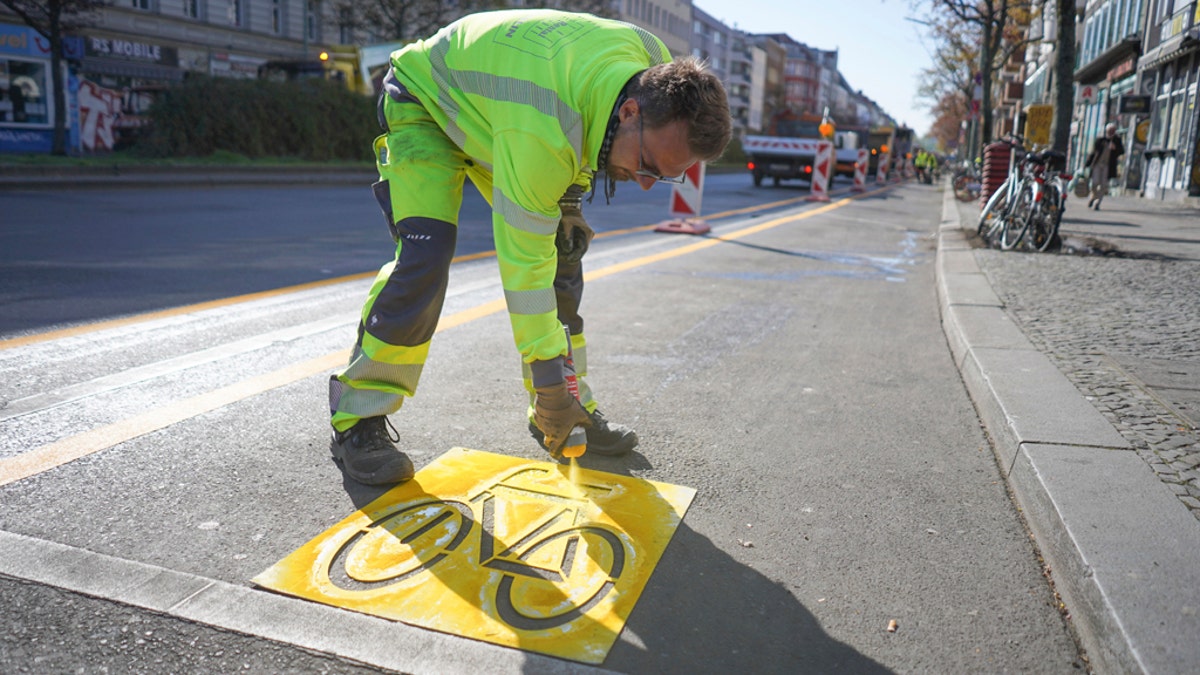New study reveals regular exercise can help protect from severe coronavirus complications
Dr. Nicole Saphier reacts ahead of the release of her new book 'Make America Healthy Again.'
Get all the latest news on coronavirus and more delivered daily to your inbox. Sign up here.
France is setting aside more than $21 million to support cyclists and to keep pollution levels and public transportation crowds low once coronavirus restrictions are lifted.
The government plan allocates up to $54 (50 euro) to everyone in the country for bike repairs at registered mechanics, Elisabeth Borne, minister for ecological transition, told Le Parisien Wednesday. The funding also will be used for temporary parking spaces and bicycle training.
CLICK HERE FOR FULL CORONAVIRUS COVERAGE
“We want this period to take a step forward in cycling culture and to make cycling the little queen of deconfinement in some way," Borne said.
She called cycling “a real transport solution” since 60 percent of travel in France is under 3.1 miles.

France is looking to boost cycling when the government lifts lockdown restrictions with a $21.7 million (20 million euro) plan. (AP Photo/Michel Euler)
However, the French won’t be getting a check in the mail.
Instead, any of the 3,000 registered mechanics who fix bicycles, including changing tires or replacing chains, will be reimbursed up to $54. The cyclist will have to pay any additional costs.
The plan to boost cycling comes as the International Energy Agency reported a 3.8 percent decline in global energy demand since nations imposed coronavirus lockdowns. The agency estimated this could lead to an 8 percent drop in carbon dioxide emissions – six times larger than the reduction caused by the 2009 financial crisis.
FRANCE, SPAIN OUTLINE PLANS TO LIFT CORONAVIRUS LOCKDOWNS
Prime Minister Édouard Philippe has announced a roadmap to gradually relax restrictions in France beginning May 11 and acknowledged the “apprehension” of many citizens who use the “sometimes very densely packed” public transit. The coronavirus has sickened at least 166,543 people and killed 24,087 in France as of Thursday.
Cities and countries around the world are wrestling with how to resume public transportation with social distancing once lockdowns are lifted.

The establishment of bicycle lanes in Berlin was accelerated in order to give citizens an incentive to switch to cycling amid the coronavirus. (Joerg Carstensen/dpa via AP)
Berlin is setting aside miles of “pop-up” bicycle lanes to help people get around without using public transport.
The capacity of Milan’s metro system will be slashed to just 350,000 passengers a day, compared to 1.3 million on normal workdays, while Spain’s buses and trains are operating at 30 percent capacity.
Meanwhile, New York has seen ridership on public transit fall more than 90 percent. Now the homeless have begun to fill train cars in place of millions of riders. City officials are stepping up efforts to clean cars on a nightly basis and provide adequate shelter to the homeless.
As authorities try to address economic considerations without losing any hard-won gains from social distancing strategies, Josh Santarpia, a microbiology expert at the University of Nebraska Medical Center, said, “There will never be a perfect amount of protection.”
CLICK HERE TO GET THE FOX NEWS APP
“It’s a personal risk assessment,” Santarpia said. “Everybody has to decide, person by person, what risk they’re willing to tolerate.”
The Associated Press contributed to this report.

